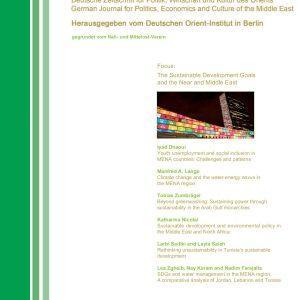Description
This article problematises sustainable development in Tunisia through the lens of regional (under)development. Decades of accumulated imbalances between the country’s coastal (Sahel) and southern/interior regions stand as barriers to ‘inclusive citizenship.’ Spatially transposed imbalances in service provision and economic goods (income and employment) are compounded by unequal burden-sharing of costs of development by people and environment of the central and southern regions. while institutional democratic gains since the 2011 revolution have been substantial, regional disparities in Tunisia have only been exacerbated in recent years. This calls for critical rethinking, in scholarship and policy, of the interplays between sustainable and unsustainable development (e.g. in the tourism industry).
Larbi Sadiki is Professor of Arab Democratization at Qatar University. He is the Lead Principal Investigator on the QNRF-funded project ‘Transitions of Islam and Democracy: Engendering ‘Democratic Learning’ and Civic Identities,’ and editor of the forthcoming Routledge Handbook of Middle East Politics (2020).
Layla Saleh is Associate Professor in the Department of International Affairs, Qatar
University. She is a Principal Investigator in the QNRF-funded ‘Transitions of Islam
and Democracy: Engendering ‘Democratic Learning’ and Civic Identities,’ and the author of US Hard Power in the Arab World: Resistance, the Syrian Uprising, and the War on Terror (Routledge, 2017).




Reviews
There are no reviews yet.